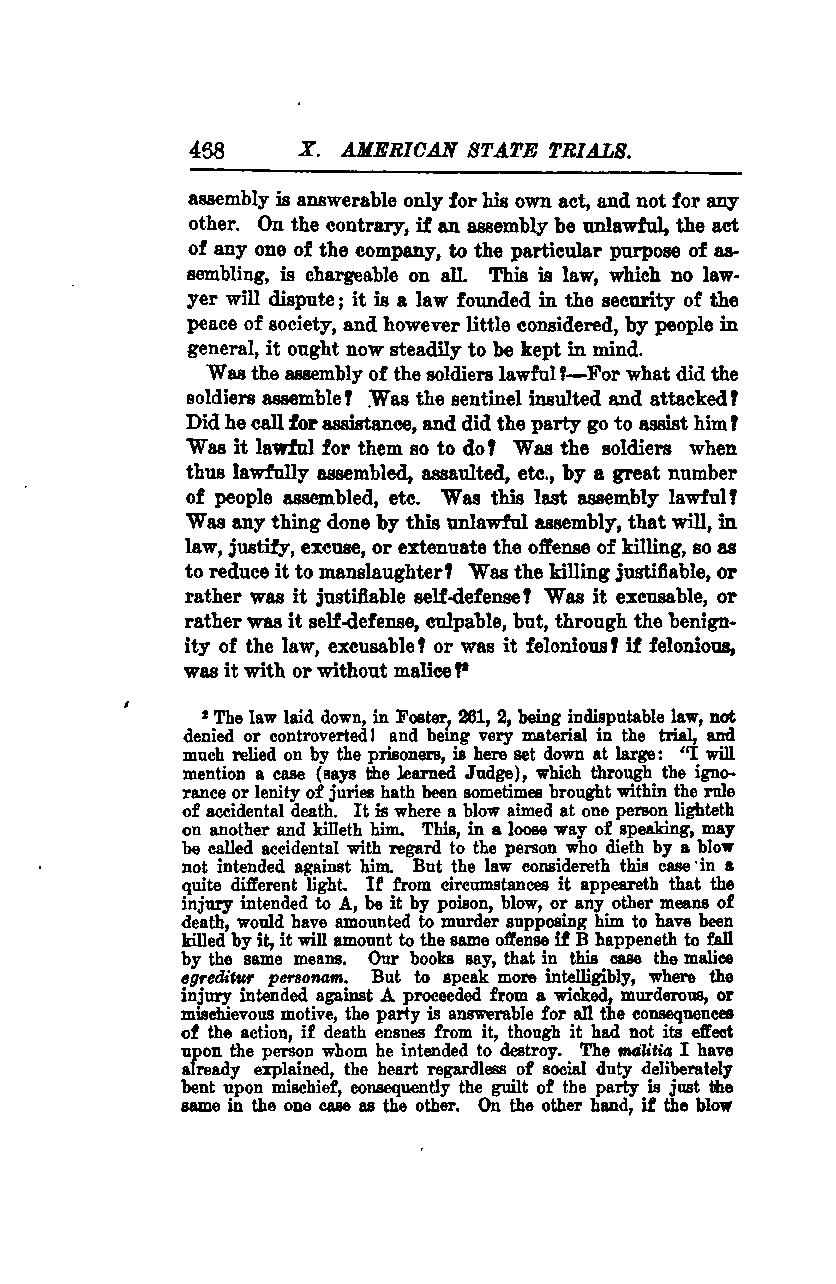
Here is the translated text as follows:
488 X. AMERICAN STATE TRIALS.
In an assembly, each member is accountable only for their own actions, and not for the actions of others. However, if an assembly is deemed unlawful, the actions of any member, related to the purpose of the assembly, are attributable to all members. This is a legal principle that no lawyer would dispute. It is a law rooted in the need to maintain societal peace, and though often overlooked by the general public, it should be consistently considered.
Was the assembly of the soldiers lawful? For what purpose did the soldiers gather? Was the sentinel insulted and attacked? Did he call for assistance, and did the party go to assist him? Was it lawful for them to do so? When the soldiers were lawfully assembled, were they assaulted by a large number of people? Was this latter assembly lawful? Did the unlawful assembly do anything that would, in law, justify, excuse, or mitigate the offense of killing, so as to reduce it to manslaughter? Was the killing justifiable, or rather, was it justifiable self-defense? Was it excusable, or rather, was it self-defense, culpable but, through the leniency of the law, excusable? Or was it felonious? If felonious, was it with or without malice?
The law as stated in Foster, 261-262, is indisputable and was not denied or contested. It is highly relevant to the trial and was heavily relied upon by the defendants. It is presented here in full: "I will mention a case (says the learned Judge), which through the ignorance or lenity of juries hath been sometimes brought within the rule of accidental death. It is where a blow aimed at one person lands on another and kills him. This, in a loose way of speaking, may be called accidental with regard to the person who dies by a blow not intended for him. But the law considers this case in a quite different light. If from circumstances it appears that the injury intended to A, be it by poison, blow, or any other means of death, would have amounted to murder supposing him to have been killed by it, it will amount to the same offense if B happens to fall by the same means. Our books say that in this case the malice egreditur personam. But to speak more intelligibly, where the injury intended against A proceeded from a wicked, murderous, or mischievous motive, the party is answerable for all the consequences of the action, if death ensues from it, though it had not its effect upon the person whom he intended to destroy. The malitia I have already explained, the heart regardless of social duty deliberately bent upon mischief, consequently the guilt of the party is just the same in the one case as the other. On the other hand, if the blow..."
---